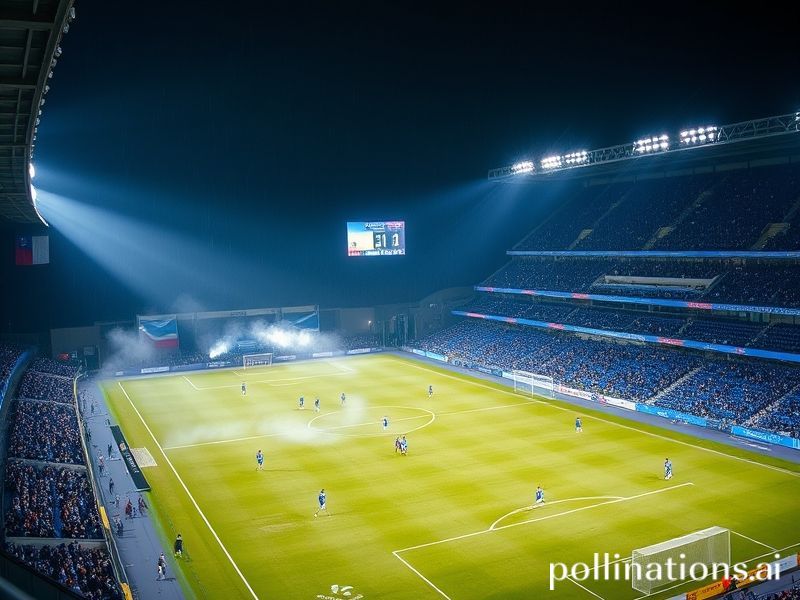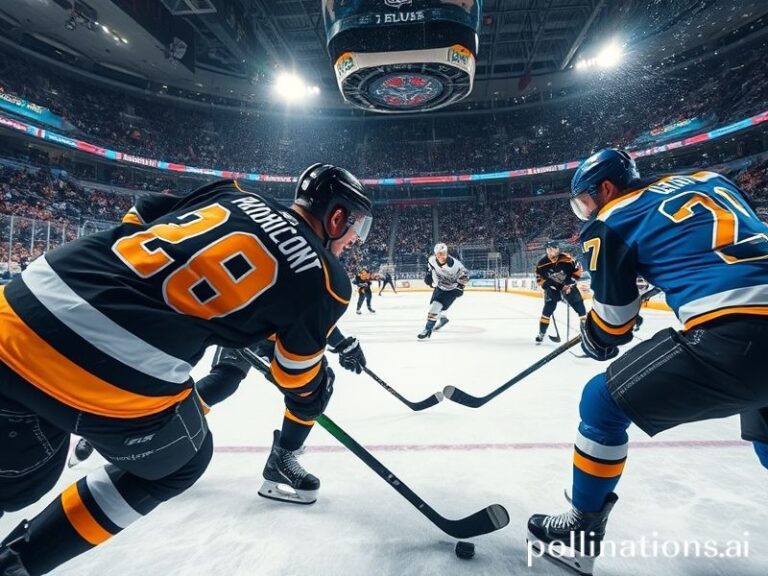Alianza Lima vs. Universidad de Chile: When 90 Minutes of Football Become a Proxy War for the Entire Pacific Coast
The Pacific War ended in 1884, but every time Alianza Lima and Universidad de Chile meet, someone still insists on refighting it in 90-minute installments. Tonight the skirmish relocates to Estadio Nacional in Santiago, where 48,000 Chileans will scream for blood, 2,000 itinerant Peruvians will scream for a miracle, and the rest of us will scream internally while watching the live feed stutter across three continents.
In the grand scheme of things—Ukraine smoldering, TikTok possibly vaporizing, glaciers politely resigning—the fixture is just football. Yet it is also a perfectly absurd microcosm of how the global south weaponizes sport to launder historical resentment into something FIFA can monetize. Call it geopolitics with corner kicks: two countries whose presidents can’t agree on the price of avocados now delegate national honor to a 21-year-old winger who recently discovered existentialism on Instagram.
From London betting shops to Dubai crypto lounges, the line opened at Chile -0.5, then drifted when rumors surfaced that Alianza’s keeper spent the morning googling “how to stop low-driven shots without feeling.” The match matters because South American club coefficients matter because CONMEBOL prize money matters because every federation south of Texas is essentially running a high-risk hedge fund with grass stains. Lose tonight and Peru drops another rung on the coefficient ladder, which in practical terms means the country’s economy will be propped up by slightly fewer blood-pressure pills and slightly more artisanal cocaine.
Zoom out and you see the wider punchline: in the same week that European Super League architects were publicly flogged for greed, the Copa Sudamericana quietly squeezes an extra travel day into the schedule so that a team from 2,500 meters above sea level can play at sea level 48 hours later. Jet lag is the new colonialism, only now the oppressor is an Excel spreadsheet wearing a blazer.
On the pitch, the plot is deliciously miserable. Alianza arrives with their star striker suspended for the crime of retweeting an unflattering meme about the Chilean customs service. Universidad de Chile counters with a teenage center-back whose agent has already scheduled him for three medicals in Europe, assuming he survives the barrage of pisco-fueled boos. Somewhere a data scout for Brighton is live-tracking pass-completion rates, blissfully unaware that tonight’s wind is doing things to the ball that violate several laws of Newtonian physics.
The irony, of course, is that both clubs are owned by consortiums whose tax domiciles have warmer beaches than either Lima or Santiago. Local identity is now just another marketing garnish, like the artisanal churros sold outside the stadium for the price of a modest mortgage payment. Fans wave flags stitched in Bangladesh, sing songs written by YouTube algorithms, and record every second on phones assembled by hands they will never meet. Nationalism has been successfully outsourced.
Yet when the whistle blows, none of that matters. For two hours, debt ceilings, climate summits, and El Niño politely wait outside the turnstiles. The ball skids, a shin connects, and suddenly the whole continent remembers it is still capable of collective hallucination. An entire generation of Peruvian kids will grow up believing—or disbelieving—based on whether a spherical object kisses nylon tonight. That is both horrifying and weirdly comforting.
Final whistle. Someone wins, someone loses, and the commentators immediately pivot to explaining how tonight’s result will affect next month’s FIFA rankings, which will affect seeding, which will affect tourism slogans, which will affect the GDP of nations that still can’t reliably supply drinking water. The cycle spins on, greased by hot takes and cold hard cash.
Back in the mixed zone, the losing coach mutters something about football being unjust, which is the closest anyone will come to admitting the obvious: justice was never the point. The point was 90 minutes of beautiful, futile noise—proof that even in the age of drones and microplastics, humans remain gloriously, catastrophically addicted to stories they tell themselves about rectangles of grass.







